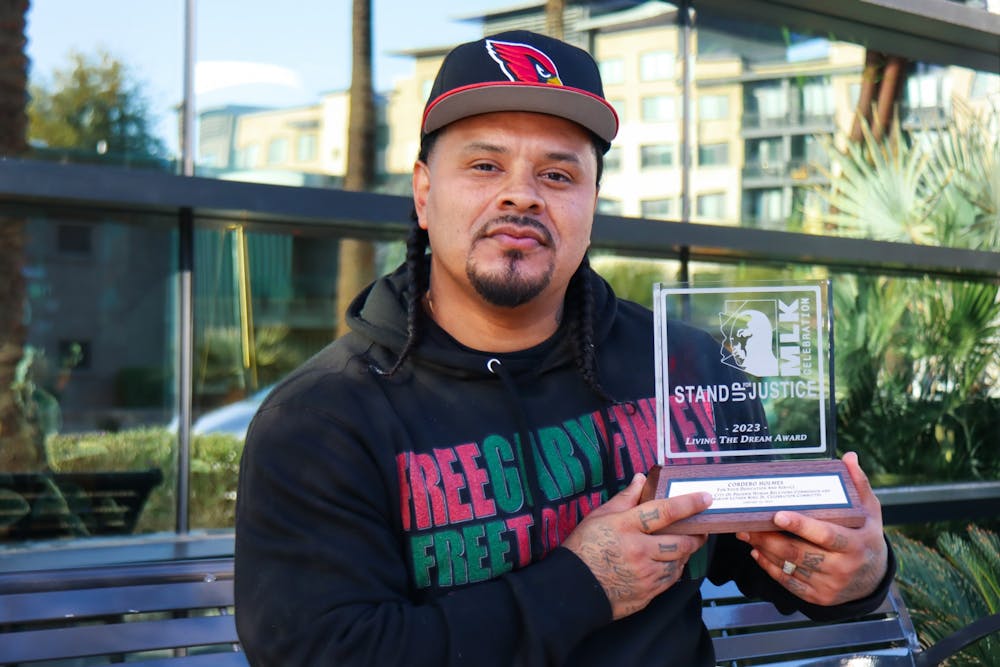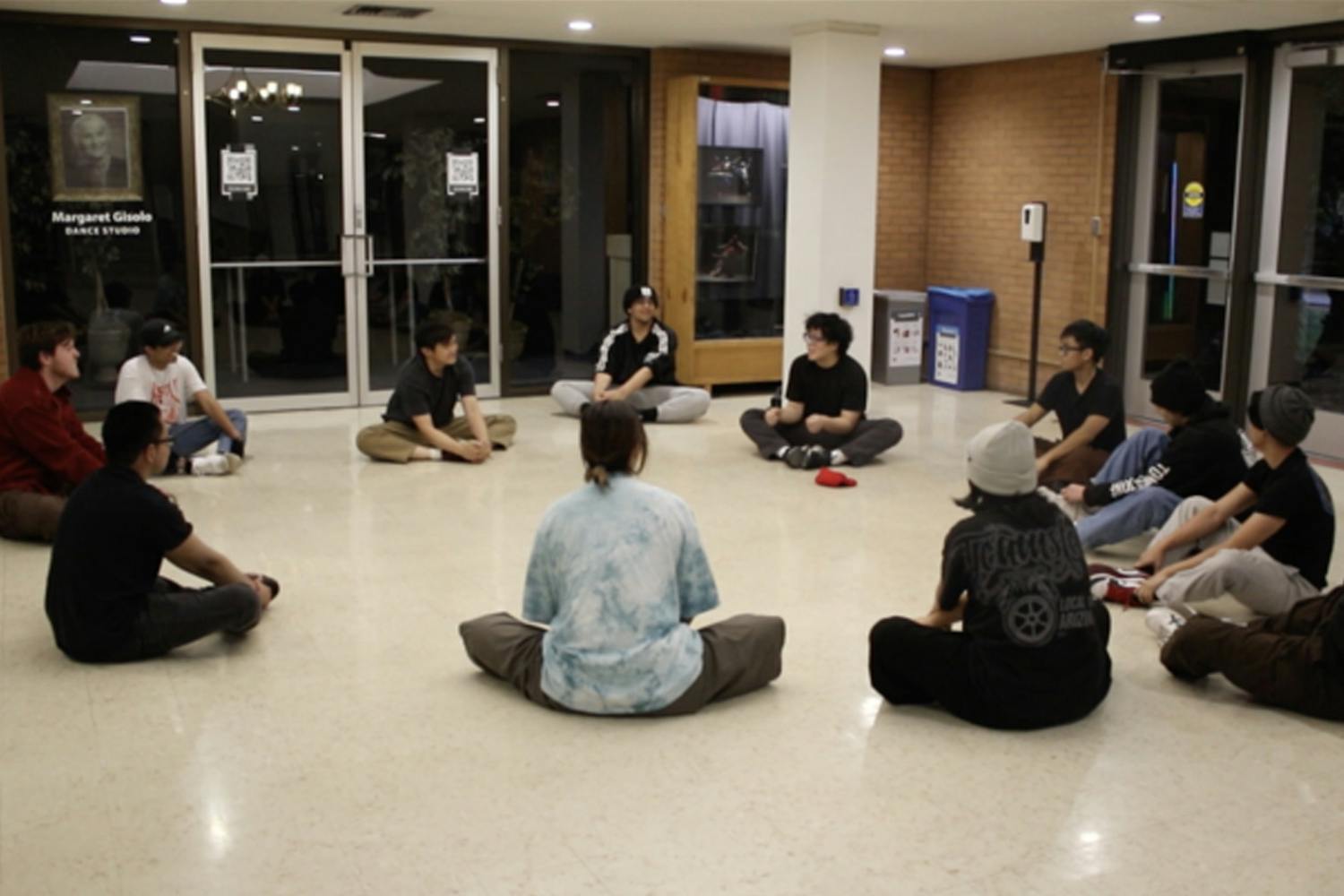"I like to tell people I changed, not because of prison but in spite of it," said Cordero Holmes of his 10-year incarceration.
Holmes, 34, who is a junior majoring in public service and public policy, was recently awarded the 2022 Martin Luther King Jr. "Living the Dream Award" by the city of Phoenix, honoring his accomplishments in community growth through dedication to human and civil rights.
He said prolific authors he read in class who have become role models not only put their community first by educating themselves, they also took on leadership roles to change circumstance. Holmes feels his major would best serve him by allowing him to serve others in a leadership role.
That's why he has decided to run for office post-graduation.
"That's where a lot of my motivation comes from and wanting to continue doing the things that they did because the motivation and inspiration which they've given me, and I wish to give to my community today," Holmes said.
He grew up in the Simpson neighborhood in west Phoenix, where he got involved with drugs and robbery. After robbing a bank, he was charged with armed robbery and misconduct with weapons.
Though he credits incarceration with being a part of his growth, he posits that it's really the education he experienced behind bars that was the catalyst — specifically English 091, a class offered to inmates by Rio Salado College — for giving him a space to articulate his thoughts.
"Prison can get you … engross you more into a different lifestyle. But it wasn't that as much as me reading books. It was literature, reading history, understanding history, it was the 'Autobiography of Malcolm X' by Alex Haley," Holmes said.
He stresses the importance of education in breaking the cycle to the kids at Durango Detention Center, where he is an ongoing guest speaker, and acknowledges that it takes time to build an education by using a story of his own. When he first began reading for his English 091 class, he'd read 10 pages or so, and promptly forget everything he had read. He would have to go back and start again — a lesson not only about incarceration but about accessing education, as well.
"He had to start where he was at. And he'll talk to students about (how) … it doesn't matter what your education journey has been, wherever you're at now, just start taking steps and do something every day to be moving forward," said Kevin Malakowsky, a previous multi-classroom leader at Durango and current education transition specialist with Maricopa County.
Holmes also tells the Durango kids a story about fear. In the story, prison is a looming threat. It's visceral and real, especially for BIPOC people, who have been exposed to a system that perpetuates prison cycles.
"I felt like we all became victims of that … not only were we kidnapped and enslaved and colonized, you know, our lands and removed from our lands, but even mentally, you know what, we can't do certain things," Holmes said, mentioning that education is one of the top things considered impossible in his community as both African American and Tohono O'odham tribal member.
While incarcerated, he began to recognize racial inequities in the system through his literary exposure. That's why — as he tells the kids at Durango — it was harder going back for a three-month violation than it had been spending the 10 years behind bars.
Solitary confinement, where he spent three years, changed his perspective on communication and community. He was only given an hour a day out of the cell, and he couldn't afford to be picky with connection.
In his previous exposure to white people, he had seen them as "teachers, the cops, the state workers that would come and took away our families from one another," but once they were in that same space, it began to seem different.
"Us being in a vulnerable position, being in solitary confinement, we were able to see past all that and see each other as human beings and individuals," Holmes said.
As he began to advocate for his community and take classes at the University, he was exposed to people from all different walks of life. For him, it came down to acknowledging a shared humanity and understanding this is what created the community he valued.
Rachel Fedock, a professor at Barrett, The Honors College, introduced him to feminism through the works of bell hooks, which helped him learn even more about inclusivity, diversity and privilege.
What Holmes has learned is that it really does take a village — for childcare, for education, for reform. These changes require community growth and healing.
"It's so important for men to feel their feelings and express their feelings and feel connected to their community and have loving relationships," Fedock said. She felt Holmes exemplified that in her class, bringing insight and acceptance into every discussion.
"I recognize the privilege I got from being a man and getting the assistance I did with my kids, assistance that single moms going through the same situation don't often get because it's assumed they know how to take care of everything," Holmes said.
Editor's note: This article was minimally restructured to improve readability on Feb. 8, 2023.
Edited by Sadie Buggle, Reagan Priest, Piper Hansen, Sophia Balasubramanian and Grace Copperthite.
Reach the reporter at kbartune@asu.edu and follow @BartunekKaren on Twitter.
Like The State Press on Facebook and follow @statepress on Twitter.




